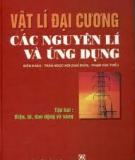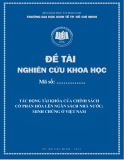Tài liệu Thư viện số
- Công nghệ thông tin (1283 )
- Toán học - Vật lý học (450 )
- Văn hóa - Giáo dục (420 )
- Điện - Điện tử - Viễn thông (482 )
- Tài chính - Kế toán (521 )
- Kinh tế - Quản lý (473 )
- Lý luận chính trị (454 )
- Ngoại Ngữ (250 )
- Nhà nước - Pháp luật (290 )
- Luận Văn - Đồ Án (397 )
- Giải Trí (191 )
- Y tế - Sức khỏe (400 )
- Tài liệu tham khảo khác (164 )
Danh mục TaiLieu.VN
- Mẫu Slide Powerpoint
- Luận Văn - Báo Cáo (344720)
- Kinh Doanh Marketing (65512)
- Kinh Tế - Quản Lý (48934)
- Tài Chính - Ngân Hàng (55898)
- Công Nghệ Thông Tin (142209)
- Tiếng Anh - Ngoại Ngữ (47066)
- Kỹ Thuật - Công Nghệ (134345)
- Khoa Học Tự Nhiên (107174)
- Khoa Học Xã Hội (82451)
- Văn Hoá - Nghệ Thuật (54408)
- Y Tế - Sức Khoẻ (173915)
- Nông - Lâm - Ngư (62504)
- Kỹ Năng Mềm (29016)
- Biểu Mẫu - Văn Bản (27610)
- Giải Trí - Thư Giãn (51994)
- Văn Bản Luật (198854)
- Tài Liệu Phổ Thông (402015)
- Trắc Nghiệm Online (213578)
- Trắc Nghiệm MBTI
- Trắc Nghiệm Holland
Tài liệu nổi bật
Kết quả 2749-2760 trong khoảng 5787
-
Bài giảng Hệ điều hành: Chương 4 - Trần Công Án (ĐH Cần Thơ)
Bài giảng "Hệ điều hành - Chương 4: Định thời CPU" cung cấp cho người đọc các kiến thức: Các khái niệm cơ bản, chu kỳ CPU–I/O (CPU–I/O Burst), ví dụ về chu kỳ CPU–I/O, bộ định thời CPU, định thời trưng dụng và không trưng dụng,... Mời các bạn cùng tham khảo nội dung chi tiết.
58 p itc 23/04/2016 286 2
-
Lecture Operating system concepts - Chapter 3: Operating-system structures
Chapter 3 is concerned with the operating-system interfaces that users (or at least programmers) actually see: system calls. The treatment is somewhat vague since more detail requires picking a specific system to discuss. This chapter is best supplemented with exactly this detail for the specific system the students have at hand. Ideally they should study the system calls and write some programs making system calls. This chapter also ties...
39 p itc 23/04/2016 213 1
-
Lecture Operating system concepts - Chapter 1: Introduction
Lecture Operating system concepts (Sixth ed) - Chapter 1: Introduction. In this chapter, you will learn to: To describe the basic organization of computer systems, to provide a grand tour of the major components of operating systems, to give an overview of the many types of computing environments, to explore several open-source operating systems.
23 p itc 23/04/2016 229 1
-
Lecture Operating system concepts - Chapter 2: Computer-system structures
Chapter 2 discusses the general structure of computer systems. It may be a good idea to review the basic concepts of machine organization and assembly language programming. The students should be comfortable with the concepts of memory, CPU, registers, I/O, interrupts, instructions, and the instruction execution cycle. Since the operating system is the interface between the hardware and user programs, a good understanding of operating systems...
29 p itc 23/04/2016 219 1
-
Lecture Operating system concepts - Chapter 7: Process synchronization
Chapter 7 is concerned with the topic of process synchronization among concurrently executing processes. Concurrency is generally very hard for students to deal with correctly, and so we have tried to introduce it and its problems with the classic process coordination problems: mutual exclusion, bounded-buffer, readers/writers, and so on. An understanding of these problems and their solutions is part of current operating-system theory and...
61 p itc 23/04/2016 176 1
-
Lecture Operating system concepts - Chapter 4: Processes
In this chapter we introduce the concepts of a process and concurrent execution; These concepts are at the very heart of modern operating systems. A process is is a program in execution and is the unit of work in a modern time-sharing system. Such a system consists of a collection of processes: Operating-system processes executing system code and user processes executing user code. All these processes can potentially execute concurrently, with...
38 p itc 23/04/2016 200 1
-
Lecture Operating system concepts - Chapter 9: Memory management
In this chapter, we discuss various ways to manage memory. The memory- management algorithms vary from a primitive bare-machine approach to paging and segmentation strategies. Each approach has its own advantages and disadvantages. Selection of a memory-management method for a specific system depends on many factors, especially on the hardware design of the system. As we shall see, many algorithms require hardware support, leading many...
54 p itc 23/04/2016 255 1
-
Lecture Operating system concepts - Chapter 8: Deadlocks
Lecture Operating system concepts (Sixth ed) - Chapter 8: Deadlocks. After studying this chapter you will be able to develop a description of deadlocks, which prevent sets of concurrent processes from completing their tasks; to present a number of different methods for preventing or avoiding deadlocks in a computer system.
41 p itc 23/04/2016 186 1
-
Lecture Operating system concepts - Chapter 6: CPU scheduling
In chapter 4, we introduced threads to the process model. On operating systems that support them, it is kernel-level threads not processes that are in fact being scheduled by the operating system. However, the terms "process scheduling" and "thread scheduling" are often used interchangeably. In this chapter, we use process scheduling when discussing general scheduling concepts and thread scheduling to refer to thread-specific ideas.
33 p itc 23/04/2016 177 1
-
Lecture Operating system concepts - Chapter 5: Threads
The process model introduced in Chapter 4 assumed that a process was an executing program with a single thread of control. Many modern operating systems now provide features for a process to contain multiple threads of control. This chapter introduces many concepts associated with multithreaded computer systems and covers how to use Java to create and manipulate threads. We have found it especially useful to discuss how a Java thread maps to...
20 p itc 23/04/2016 183 1
-
Lecture Operating system concepts - Chapter 10: Virtual memory
Virtual memory can be a very interesting subject since it has so many different aspects: page faults, managing the backing store, page replacement, frame allocation, thrashing, page size. The objectives of this chapter are to explain these concepts and show how paging works.
55 p itc 23/04/2016 237 1
-
Lecture Operating system concepts - Chapter 14: Mass-storage systems
In this chapter, we begin a discussion of file systems at the lowest level: the structure of secondary storage. We first describe the physical structure of hard disks and magnetic tapes. We then describe disk-scheduling algorithms, which schedule the order of disk I/Os to maximize performance. Next, we discuss disk formatting and management of boot blocks, damaged blocks, and swap space. We conclude with an examination of the structure of...
44 p itc 23/04/2016 248 1
Đăng nhập
Bộ sưu tập nổi bật























